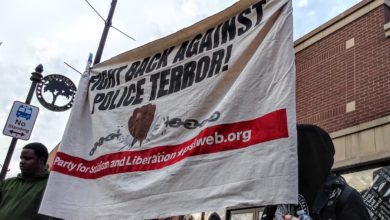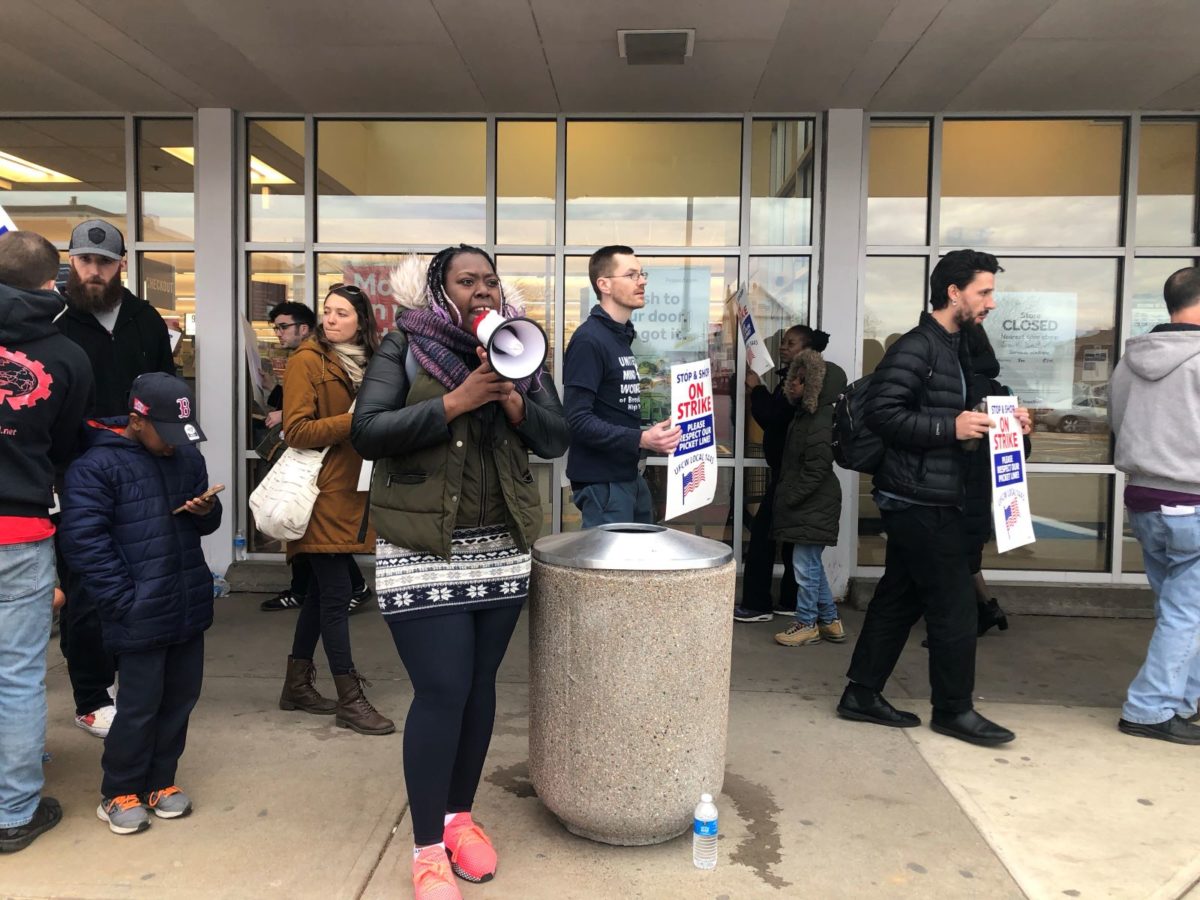>On August 15, emergency services were called out to the New Haven Green to respond to reports of large numbers of people falling ill. As it turned out, this was due to overdoses caused by a potent batch of K2, a synthetic cannabinoid, being sold and circulated among people who were congregating at the Green. As more reports of overdoses in the area continued over the next several days, the number climbed to 100 overdose victims
Norm Clement of New Haven, a member of the Party for Socialism and Liberation, went down to the New Haven Green to observe the city response to the event. He told Liberation: “When I arrived at the Green, I saw police and rescue squads everywhere. It really looked like a war zone. Vehicles were arriving from all directions. Walking closer, I witnessed two men sitting on benches being checked by paramedics. A few minutes later one was being placed into an ambulance seemingly against his will. Then I noticed police just approaching people at different sections of the park, detaining them and calling for emergency services.”
Many people were forcibly taken to the hospital while many others who wanted to receive more treatment were forced to leave the hospital before they felt ready. One resident of the Green shared her experience: “Many people were taken to the hospital against their will,” she said,“then after treatment dumped back on to the street. I was still high and not feeling right, and I didn’t wish to leave the hospital but had to anyway.”
With the mass overdose an ongoing horror, the city has responded by upping the police presence downtown. Local media has used the opportunity to highlight the alleged “need” for more police. Police have arrested a few people who allegedly distributed K2 downtown, but such arrests fail to address the systemic problems underlying this tragedy.
Adding insult to injury, New Haven Mayor Toni Harp has invited President Trump’s Drug Czar nominee, Jim Carroll, to visit New Haven as part of the city response to the mass overdose event. The Trump administration’s “Initiative to Stop Opioid Abuse and Reduce Drug Supply and Demand” is primarily a “tough on crime” plan that includes increased use of the death penalty. The initiative has been criticized by addiction and public health experts for bringing back the failed “War on Drugs” approach while doing little to increase access to treatment for people with substance use disorders.
Many New Haven activists and residents have condemned the city’s response to the overdoses. Many have pointed out that legal cannabis would decrease the demand for synthetic cannabinoids like K2.
Local LGBTQ health advocate and healthcare worker Layne Gianakos told Liberation: “‘Synthetic’ or ‘fake’ weed is a huge misnomer. K2/Spice is chopped up herbs sprayed with synthetic cannabinoids and is sold legally at gas stations since it is labeled as ‘incense’ and marked ‘not for human consumption.’ There are a variety of synthetic cannabinoids that might be used and none are THC which is the naturally occurring cannabinoid found in marijuana.”
Gianakos continued: ” K2 has been found laced with fentanyl, rat poison, and PCP. Even when it isn’t laced with another drug, consumption of K2 can lead to heart attacks, seizures, kidney failure, and stroke. Furthermore, K2 is addictive and when someone quits they can experience serious withdrawal symptoms. If you suspect someone is giving you K2, do not smoke it. If marijuana use was legalized, more easily accessible, and users weren’t criminalized, use of K2 would sharply decrease. In short, this could have been prevented.”
Brett Davidson of the CT Bail Fund said: “I’m so dismayed at the way the city and state – and a lot of the public – are responding to the health crises on the Green. Here’s an idea… how about we actually ask the survivors what they need, instead of talking about them as if they’re mindless animals? Pretty sure the answers would look a lot less like the war on drugs and a lot more like harm reduction, housing for all, reliable healthcare, affordable legalized cannabis, an end to NHPD brutality, etc., etc., etc.”
Some residents have also taken up the task of reaching out to the community downtown to help during this time of crisis, including providing free food to poor and homeless individuals. However, even these efforts were met with hurdles from the city. A viral Facebook post by a New Haven resident exposed that on August 17, city Parks and Recreation director Rebecca Bombero accosted people at the free food stations, asked if they had a permit to distribute food, took photos of the volunteers and threatened to call police on them. Bombero later claimed that she had approached the activists for having cars parked on the Green, which actually belonged to an unrelated church event.
Lawyer Peter Goselin, who is running for Connecticut Attorney General, said: “I fought the court case for Middletown Food Not Bombs that led to the state revising its health code. It is perfectly legal to share food with people in public parks, no matter who they are.”
New Haven has a history of prioritizing appearances and policing over addressing systemic issues of health and housing. The efforts to criminalize homelessness and punish people who suffer from addiction go hand-in-hand with the growing gentrification of the city. Community members have noted that the harassment of people considered “undesirable” in downtown regularly increases with the presence of Yale University students, who are now beginning to come back for the fall semester. Under Mayor Harp, who promised in her campaigns to open more homeless shelters, the city has instead decreased the number of beds available and increased funding for the police department, whose officers regularly harass and arrest homeless people.
Earlier, in June, youth activist Jerome Richardson was assaulted, injured and arrested by New Haven police for asking a friend why officers were harassing two homeless people on the Green. The arrest sparked outrage among community members, who immediately demanded justice for Jerome and all people harassed by police downtown.
We must continue to fight for a system that treats drug addiction as a public health issue rather than a criminal issue. Pushing for more policing, the “War on Drugs” and mandatory minimum sentences has proven to be a failure, only leading to an explosion of the prison population in the United States. The City of New Haven must put substance abuse treatment, help for the poor and medical treatment at the forefront of any initiative, instead of subjecting its residents to further abuse.





